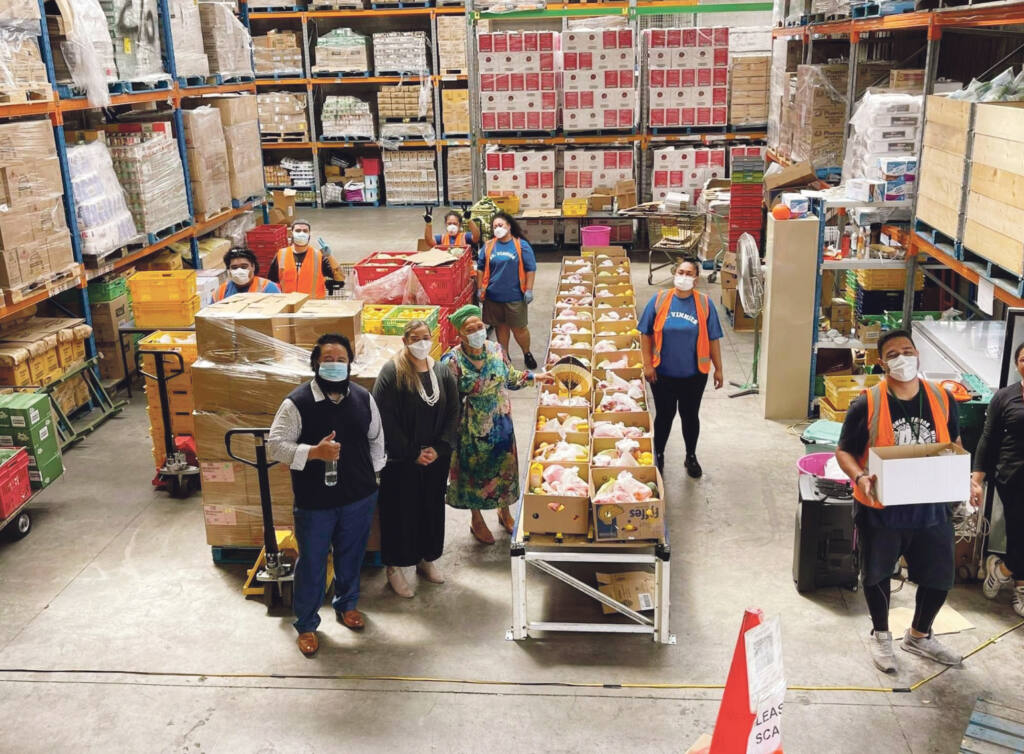WelCom August 2022
Michael Fitzsimons

Vinnies hubs and networks around the country are continuing to meet a strong demand for assistance as the rising cost of living impacts on disadvantaged communities.
In Auckland, the demand for food parcels in June was around 500 food parcels a week, with peak demand this year reaching 1,200 food parcels. Covid has a long tail and there are many layers of need in the community, says Delphina Soti, General Manager of St Vincent de Paul Hub in Auckland.
‘The mental health of a lot of people has been affected by Covid. Probably about a third of those we are dealing with cannot work for one reason or another – they might have health or mental-health issues or have very young children. The benefit does not suffice and they cannot work.
‘There’s a lot of talk about things coming back to normal but in reality recovery takes a couple of years. Employment rates may be at their highest, but some families are juggling three or four jobs that don’t pay as well as the jobs they used to have pre-Covid. There are more industrial jobs which pay the bills, but the work is harder and takes a toll on family members. We also have a lot of young Pasifika and Māori people who are opting not to go onto tertiary education as their families are struggling and they need to work to bring in more money.’
Delphina Soti cited the costs of housing, rental accommodation, debt-servicing, food and petrol as major pressure points for struggling families.
‘Food is becoming so expensive that it has become a discretionary item. People opt to pay for housing and amenities before food. The food parcels which we distribute are based on larger families units, are high in nutritional value and make a significant difference to families. We follow the “Standard Food Parcel” measure established by Kore Hiakai Zero Hunger Collective. We have done a lot of work to ensure our parcels are tailored to the needs of different families, for example Halal, Pasifika, vegan and so forth.’
Each food pack has a fruit and vege box of 20-25kgs, a frozens box with at least 3kgs of meat or poultry and dairy items such milk, cheese and butter. There is also a box of dry ambient goods and a separate pack of either toiletries and sanitary or cleaning items.
When the effects of the pandemic began to escalate in 2020, Vinnies Auckland expanded their operation from a 200 square-metre warehouse to an 1100 square-metre warehouse. People are referred to Vinnies from a range of sources, and their needs are assessed by a Vinnies triage team. The food hub operates a drive-through system which allows people who have already registered to come at an allocated time to pick up their food-boxes.
‘Hundreds of boxes are pre-packed by staff and volunteers throughout the week. On pick-up day, it’s like a drive-through takeaway service,’ says Delphina. ‘We had to figure out a way to meet the huge demand and keep it safe, dignified and non-contact.’
Delphina Soti says we are yet to see the full impact of Covid-19, the rising cost of living and the uncertainty which people are feeling. ‘These combined pressures are really affecting people’s income, their psyche and wellbeing. We are seeing a lot of businesses owners and working families who are struggling during these unpredictable and fluctuating times.’
Vinnies are working with a range of networks, farms and food producers to procure nutritious food at cost price. As well as offering emergency food parcels, the Vinnies Auckland hub team are exploring a cooperative model which would allow low-income families to access good quality food for a fraction of the cost.
‘It is not dignified for our whānau to be on the emergency food scheme long term. Many who come through to access emergency parcels express their gratitude and also the shame of having to ask for an emergency food parcel. They are always wanting to contribute and give back. The co-op approach would allow whānau to purchase and have access to enough good quality, low-cost food,’ says Delphina.
‘Food insecurity is a growing concern in our local communities. We need to lobby our leaders and those who make the decisions, but we also need to encourage a community response. We are currently working with schools, community groups and parishes on this. These efforts include workshops on how we can work towards a food secure community, it includes gleaning on farms, sourcing land to plant community gardens and so forth.
‘On Saturdays, Vinnies Auckland host large community-service days in the food hub where hundreds of boxes are packed and processed by volunteers. Some of these people have received food parcels themselves so they become part of the Vinnies volunteer base. We invite people to come down here and help us make a response, but we also have a korero about how we can do things differently to procure more food for our whānau.’